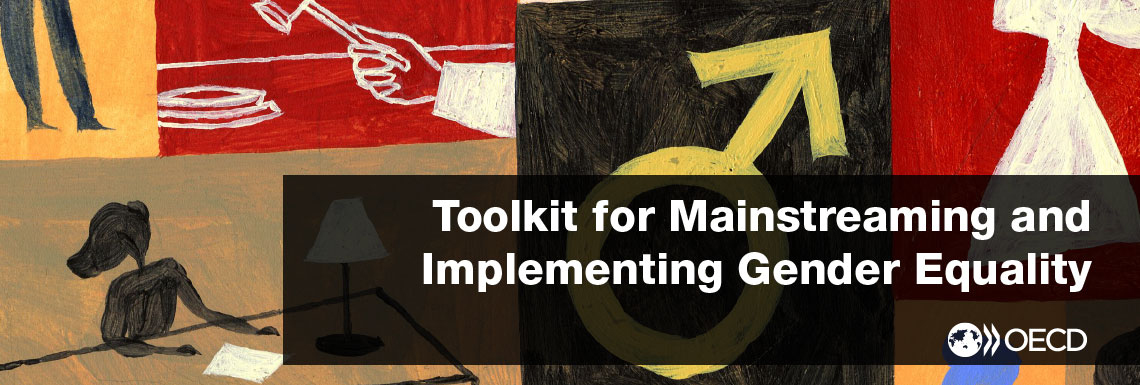Workforce development, promotion, and succession planning embed gender equality objectives
SELF-ASSESSMENT QUESTION
- Do public sector workforce development and career promotion actions reflect gender equality policies and objectives?
- Do organisations’ succession plans promote gender equality action by embedding specific targets for all levels and occupational groups?
WHY IS IT IMPORTANT?
Workforce development and talent management can be used to disseminate organisational knowledge about gender equality objectives and policies, and share ideas about their implementation. Comprehensive learning programmes and culture change activities can promote a culture of diversity and inclusion, and enhance civil service values and principles.
Workforce development and talent management programmes help employees develop career plans, acquire leadership skills and succeed in increasingly challenging assignments. The most effective ways to support career progression, for both women and men, include leadership development programmes, coaching, sponsorship and mentoring, and increased visibility and exposure to senior leaders.
Making the best use of available talent in the economy in general and in the public sector in particular is important for ahieving inclusive growth and boosting competitiveness and resilience. Proactive talent management requires identifying high-potential and high-performing men and women and supporting them in their career paths.
Succession planning (i.e., aligning current talent development with future leadership needs) can play a critical role in breaking the “glass ceiling”. Specific actions, such as target setting, can also foster career aspirations for underrepresented and disadvantaged groups, such as women with disabilities or members of ethnic or racial minorities.
ACTIONS TO CONSIDER
- Developing and review talent management initiatives and succession planning from gender balance perspectives (e.g., focusing on improving the environment in which women work rather than only focusing women; addressing various barriers to women's access to leadership);
- Promoting gender balanced selection and participation in leadership and management development programmes;
- Designing policies and leadership development programmes based on evidence and recent research to avoid biases and stereotypes;
- Establishing mentoring programmes for women in leadership pipeline;
- Fostering senior leaders’ commitment to gender balanced workforce development and promotions;
- Defining accountability for gender equality in talent management and succession planning.
PITFALLS TO AVOID
- Limited recognition of the existence of unconscious biases and the resultant stereotypes about gender and leadership;
- Insufficient communication on the importance of gender balance in leadership positions;
- Excluding employees working part-time or on other flexible arrangements from promotion and career planning.
COUNTRY EXAMPLES
Ireland
Leadership and Training Programmes for Women
Ireland’s National Women’s Strategy 2007-2016 and the W-LEAD Women in the Lead – Leadership, Engagement, Advancement and Development programme, a pilot cross-Departmental mentoring and leadership development programme for female Principal Officers in the Civil Service, have been considered a great success: while targets for female representation at the Assistant Principal and Principal Officer grades were originally set at 33% and 27% respectively, both targets have been exceeded with women representing 42% of Assistant Principals and 36% of Principal Officers at the end of 2014. Each of the 16 Government Departments participated in the W-LEAD pilot programme; each participant received executive coaching, mentoring and leadership development training. The W-LEAD programme supports career progression and professional development and helps participants to devise a personal plan or strategy for career advancement within the Civil Service.
Austria
Cross mentoring
Since women should be equally represented in all spheres of the public sector, the Cross-Mentoring Program aims to facilitate their access to top positions. Hence, it focuses on motivated, career-minded female employees. Initiated by the pilot project “Mentoring for Women” in 2000, the Cross-Mentoring Program has been launched in March 2005 and is coordinated by the Directorate General III of the Austrian Federal Chancellery in cooperation with fellow staff developers of the other Federal Ministries and the Parliamentary Administration. This personnel development tool allows participating Civil Service staff to take stock of where they stand in order to further progress towards a specific career objective to be defined as part of the program. The program’s defining feature consists in managers (i.e. mentors) supporting their colleagues from other Ministries (i.e. their mentees) in achieving their particular goal. The mentors share their own know-how and experience, give tips on career planning, and facilitate entry to professional networks. In addition to working on developing their careers in tandem with their mentors, mentees thus have the additional opportunity to network across Ministry boundaries, for example during workshops and networking meetings. The Cross-Mentoring scheme is constantly being evaluated and improved in order to meet the needs of mentors and mentees as much as possible.

